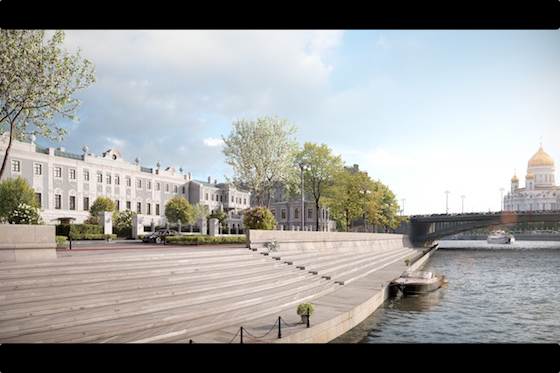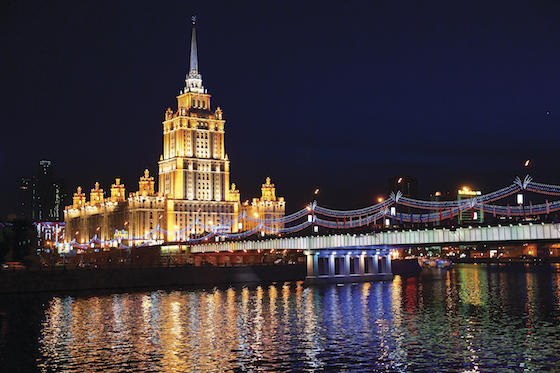In a vast country like Russia, whose economy is no bigger than New York state, when the cost of capital rises, the viability of hotel projects decreases.
“Russia has a future, but it’s just in a pretty hard place at the moment,” says Darren Blanchard, a hotel real estate development professional in Eastern Europe and former vice president of development for a major global brand.
Radisson Hotel Group Executive Vice President and Chief Development Officer Elie Younes believes 2019 will provide more clarity around when dealmaking will make sense; it’s difficult to draw conclusions this year when the World Cup distorted current trends.
“Next year is the year which one can start making forecasts for a recovery,” says Younes, whose group has 36 hotels open and three under development — the biggest of all the global players in the Russian market.“Toward the end of 2019 and early 2020, assuming liquidity improves, we might see a positive impact on development.”
Until then, among other things, Blanchard cites several impediments to pipeline growth, with financing at the top of his list.
“The main challenge in Russia for hotel development remains the high cost of borrowing and the too-short duration of the credit offered by the banks, which is not really project financing,” he says.
Blanchard cites the following:
- Outdated construction standards
- Tightening operational control
- Incomprehensible and fiscal legislation creating fiscal risks ?for owners
- Lack of domestic tourism, mainly due to low income of the average household
- The high cost of transportation, which makes it difficult for?domestic tourists to visit their own country

The best advice for global developers looking at the market for opportunities?
“Closely monitor the market, as today is probably not the right time for international developers unless they are ready to become exposed to high risk,” Blanchard says.“But the fundamentals for Moscow and St. Petersburg do exist, and with a probable dry period for new room stock in the next few years, the market could become extremely attractive.
Mitigate risk by having local partners with solid political security and development knowledge, and select them very carefully.
“When working with a hotel operator, Blanchard says developers should ensure they go beyond just a local development presence to strong local operational support. “Beware of operators with a high number of franchised properties, as control over franchise service delivery in Russia is very difficult and this will be reflected in the brand reputation with Russian clientele,” he says.
Don’t forget to check fee structures in operator contracts, Blanchard adds, as many costs are globally fixed in dollars or euros, especially for reservations and additional fees.“With the ruble devaluation this became, and still is, a major issue as suddenly they are a major part of the operator cost. With a few exceptions, all operators have contracts with legal base and payment outside of Russia, and this can cause additional costs to the owner,” Blanchard says.

Deals getting done
The best opportunities in Russia right now, according to Brussels-based Younes, are conversions of independently managed hotels that require commercial support provided by bigger global brands.
“There is some activity in Moscow and a few other major cities, but it is much slower than in the past,” he says.
Younes says limited- or select-service development has been the trend over the past few years and likely will continue for the foreseeable future, especially in secondary markets that lack branded inventory.
Younes sees potential in what Radisson has in hand with its new Chinese shareholders, currently transferring from HNA Hospitality to Shanghai’s Jin Jiang International Holdings.
“This could have a transformational impact, as our new shareholder seems to have one of the world’s largest loyalty programs, 80% of which are Chinese,” Younes says. “So assuming an increase in Chinese tourists to Russia (which reached a record 1.5 million in 2017) that could have significant impact on trading and demand, and eventually new development as Radisson will be more compelling to investors. If we can leverage the loyalty program, we can generate a lot of business in Russia and gain the attention of investors.”
The other global giant with a strong presence in Russia is third-party manager Interstate Hotels & Resorts, which is developing a fifth hotel in Sochi, a Courtyard by Marriott, according to Leslie Ng, chief investment officer. The destination is becoming more of a domestic resort destination for Russians who are more often vacationing locally due to the currency devaluation.
Interstate is developing another Marriott and a Hilton in Russia. Despite the headwinds, Ng says brands recognize Russia is still an important market — and one where the brands historically have not been that well-represented.
In fact, in recent years hotel operators have increased their resources in Russia — both for development and operational support, according to Blanchard.
“This has increased the competitive environment for management contracts and franchises and invariably driven down commercial terms, lowered fees, stimulated the application of key money and other giveaways,” he says. “It’s making the development environment for operators tougher.”
At the end of the day, Ng believes that despite myriad issues in Russia, the hotel story there remains fairly steady. “We’re forecasting modest growth over the next couple years and I would say that the hotels that we’re building are probably taking business away from the older properties.”

